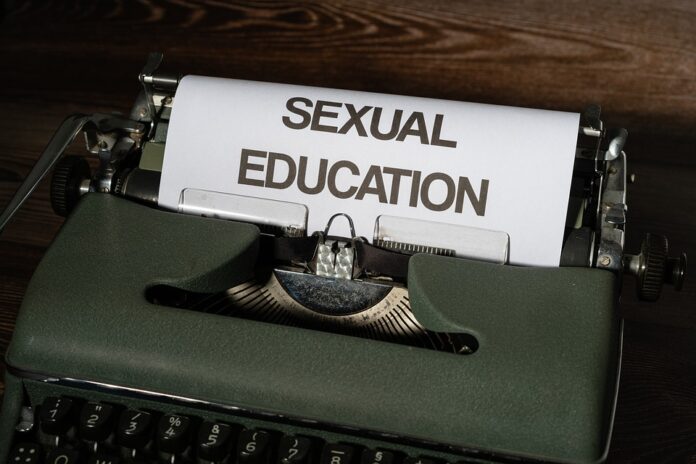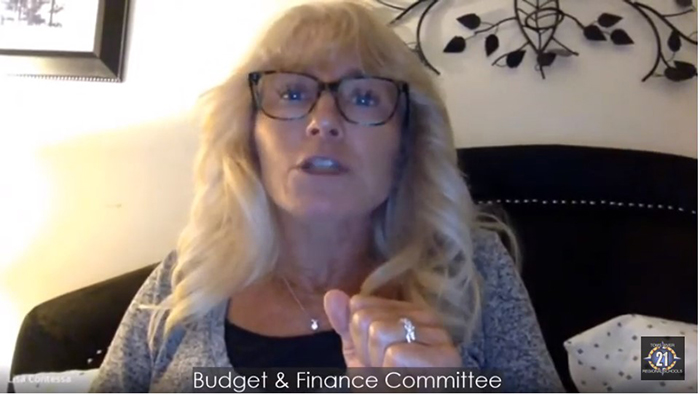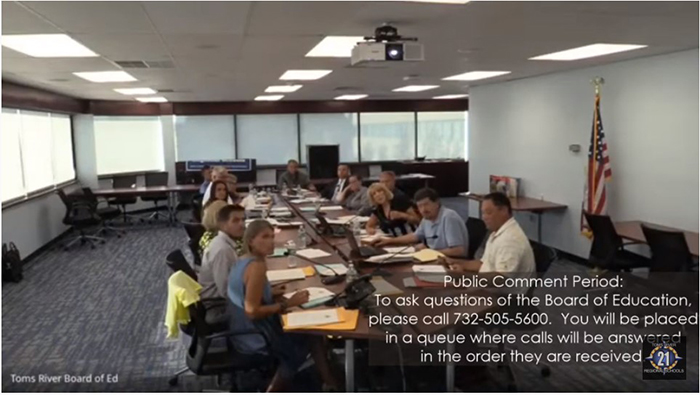
TOMS RIVER – The Board of Education will host a public hearing on the controversial sex education curriculum on August 15 at 6 p.m. at Toms River High School North.
The meeting will also be live streamed. Additionally, a Google form will be on the district’s website, no less than a week in advance, through which residents can ask questions and give feedback.
Toms River Superintendent Michael Citta said that the curriculum was designed to strike the balance between following state guidelines and giving parents autonomy. They have been working with other similar school districts in creating this curriculum, as well as taking advice from the public.
No action will be taken at the meeting, he said.
In 2020, the state updated their Comprehensive Health and Physical Education guidelines, and it encompasses a great deal more than sex and gender. It is 66 pages. There are entire pages on fitness, and just a few sentences on gender identity, but that is what some parents are concerned about. Other topics include addiction, nutrition, and resolving conflicts.
The state’s guidelines can be found here:nj.gov/education/cccs/2020/2020%20NJSLS-CHPE.pdf
Parents have expressed concerns that the state’s rules are causing students to be “indoctrinated” into lifestyles of which the parents wouldn’t approve, or they say the parents should be the ones having these conversations with the children. Examples of sex ed materials have been spread on social media, regardless of whether they were actually going to be used in a classroom.

Whenever parents bring up these points, school officials throughout Ocean County have continually said that while the state created the guidelines, each district was able to craft their own lessons. There is still an element of home rule.
According to the state document, “Today’s students are continually bombarded with physical, mental, and social influences that affect not only learning in school, but also the lifelong health of the citizens that schools are preparing for graduation. To that end, the New Jersey Student Learning Standards – Comprehensive Health and Physical Education (NJSLS-CHPE) were revised to address the need for students to gain knowledge and skills in caring for themselves, interact effectively with others, and analyze the impact of choices and consequences.”
One philosophy of education is that teachers shouldn’t just teach facts, but should create lifetime learners – something that lasts after graduation. One of the goals here is to create healthy exercise and nutrition habits for the rest of their lives.
There is language about “health literacy,” and that if someone doesn’t know anything about health issues, then they won’t know where to turn if something is wrong. They might not even know if something is wrong. Thus, there are topics for older kids about consent, sexting, and sexual assault.
The lessons are split across age levels. The youngest is “by the end of 2nd grade.” The other steps are “end of 5th,” “end of 8th,” and “end of 12th.”
For example, the core idea for sexual health by the end of 2nd grade is “Every individual has unique skills and
qualities, which can include the activities they enjoy such as how they may dress, their mannerisms, things they like to do.” By 5th grade, that has evolved into “All individuals should feel welcome and included regardless of their gender, gender expression, or sexual orientation.” The points under that, for end of 5th grade, are: “Describe gender-role stereotypes and their potential impact on self and others; Differentiate between sexual orientation and gender identity; Demonstrate ways to promote dignity and respect for all people (e.g. sexual orientation, gender identity and expression, race, ethnicity, socio-economic status, differing ability, immigration status, family configuration).”
One point of contention for some parents is that by the end of 8th grade, one of the guidelines is “Define vaginal, oral, and anal sex.”
The state’s guidance is based on best practices from throughout the nation. Educators have said that creating a place where schools welcome everyone regardless of gender identity will reduce suicide, drug abuse, and other harmful actions of teens who feel they don’t belong. In this case, it’s literally life or death for kids going through tough times.

Children are being asked to “respect and accept differences of an individual’s race, religion, gender identity, gender expression, ethnicity, disability, socioeconomic background, and perspectives of health-related decisions.”
The state requires that schools include the contributions of African Americans, people with disabilities, as well as lesbian, gay, bisexual, and transgender people “in an appropriate place.”
During one recent curriculum meeting, a Toms River educator gave an example of poet Walt Whitman being included in the curriculum. Historians believe he was part of the LGBT community, so this checks off the state requirement for LGBT representation. However, the teachers and the textbook don’t mention his sexuality. Instructors want to make sure that everyone sees someone like themselves in their education, even if they aren’t expressly labelled.





